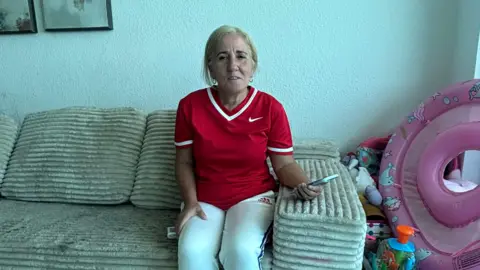When her son was taken into immigration custody, Yaneisy Fernandez feared the worst. Then she got a call from him inside 'Alligator Alcatraz'. Yaneisy told the BBC, We had no idea where he was until he called us. He said, 'mom, they took me to the facility of the crocodiles.' That's how he put it.
The temporary immigration detention center located in the Florida Everglades has become a polarizing symbol of the Trump administration's immigration policy. Just two months after opening, the Department of Homeland Security (DHS) announced it would be shutting down, complying with a judge's order. About 50% of the detainees have reportedly been moved as the closure process is underway.
The BBC spoke with families of detainees, whose loved ones have fallen victim to the system during vulnerable times. Michael Borrego Fernandez, Yaneisy's son, suffered severe medical issues while in custody, and in a lawsuit, he claims inmates were denied access to legal counsel. His mother described the conditions as inhumane, stating he was treated like 'a dog'.
Built in late June, Alligator Alcatraz was designed to house up to 3,000 detainees but was never at capacity, even as overall immigration detention levels reached record highs. It has ignited passionate protests and support rallies, serving as both a symbol of Trump's immigration crackdown and the distressing realities faced by those detained.
Reports about living conditions have been conflicting, with some officials claiming it was a well-run facility while others described it as overcrowded and unsanitary. A judge's ruling is pushing for its closure amid ongoing debates about treatment and rights of detainees.
As the closure of Alligator Alcatraz begins, reports of inadequate medical attention and lack of access to legal assistance reverberate through the community, highlighting an urgent need for reform in immigration detention facilities across the U.S. Discussions continue as the Biden administration considers alternative solutions amidst pressure from advocates and politicians alike.
The temporary immigration detention center located in the Florida Everglades has become a polarizing symbol of the Trump administration's immigration policy. Just two months after opening, the Department of Homeland Security (DHS) announced it would be shutting down, complying with a judge's order. About 50% of the detainees have reportedly been moved as the closure process is underway.
The BBC spoke with families of detainees, whose loved ones have fallen victim to the system during vulnerable times. Michael Borrego Fernandez, Yaneisy's son, suffered severe medical issues while in custody, and in a lawsuit, he claims inmates were denied access to legal counsel. His mother described the conditions as inhumane, stating he was treated like 'a dog'.
Built in late June, Alligator Alcatraz was designed to house up to 3,000 detainees but was never at capacity, even as overall immigration detention levels reached record highs. It has ignited passionate protests and support rallies, serving as both a symbol of Trump's immigration crackdown and the distressing realities faced by those detained.
Reports about living conditions have been conflicting, with some officials claiming it was a well-run facility while others described it as overcrowded and unsanitary. A judge's ruling is pushing for its closure amid ongoing debates about treatment and rights of detainees.
As the closure of Alligator Alcatraz begins, reports of inadequate medical attention and lack of access to legal assistance reverberate through the community, highlighting an urgent need for reform in immigration detention facilities across the U.S. Discussions continue as the Biden administration considers alternative solutions amidst pressure from advocates and politicians alike.





















